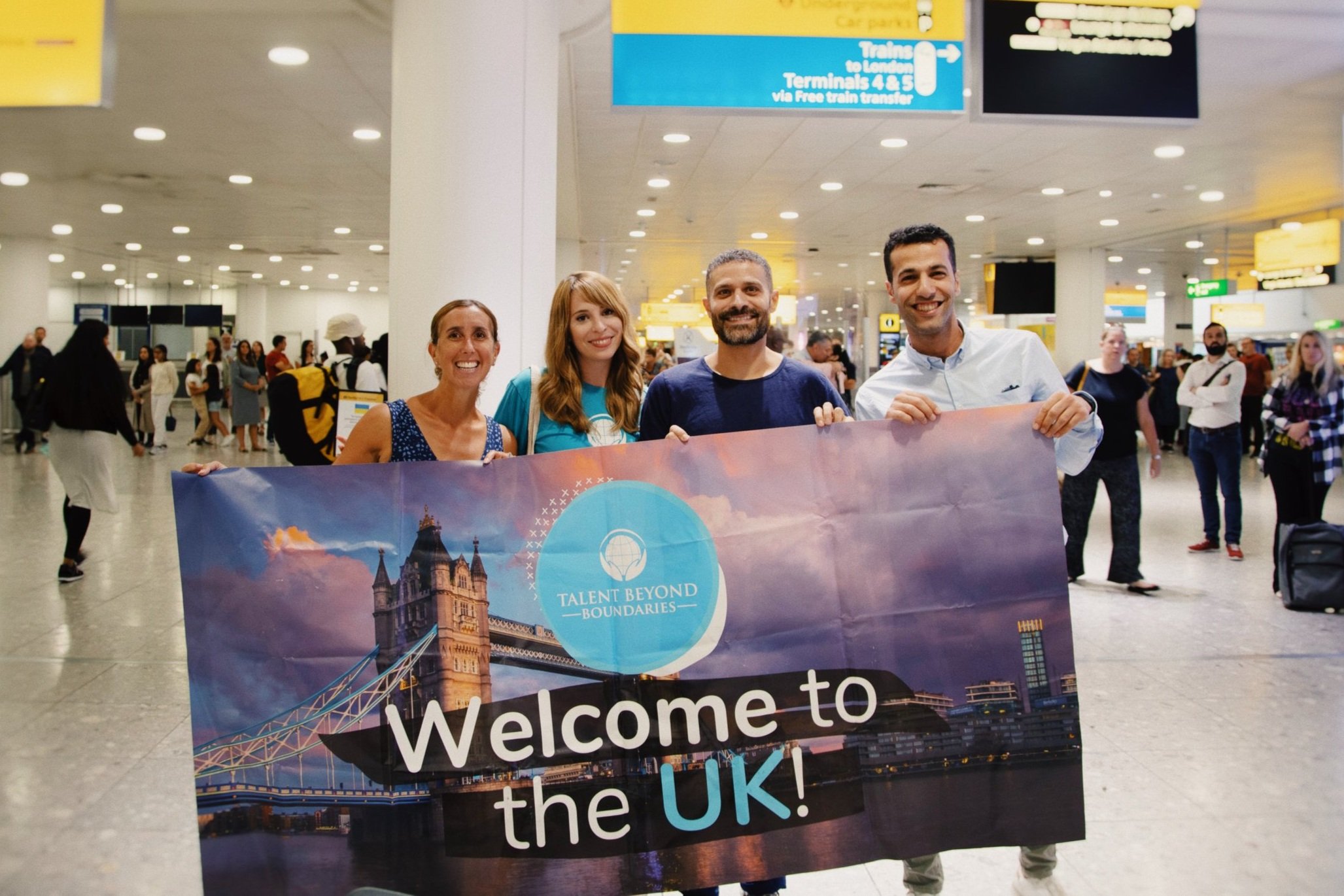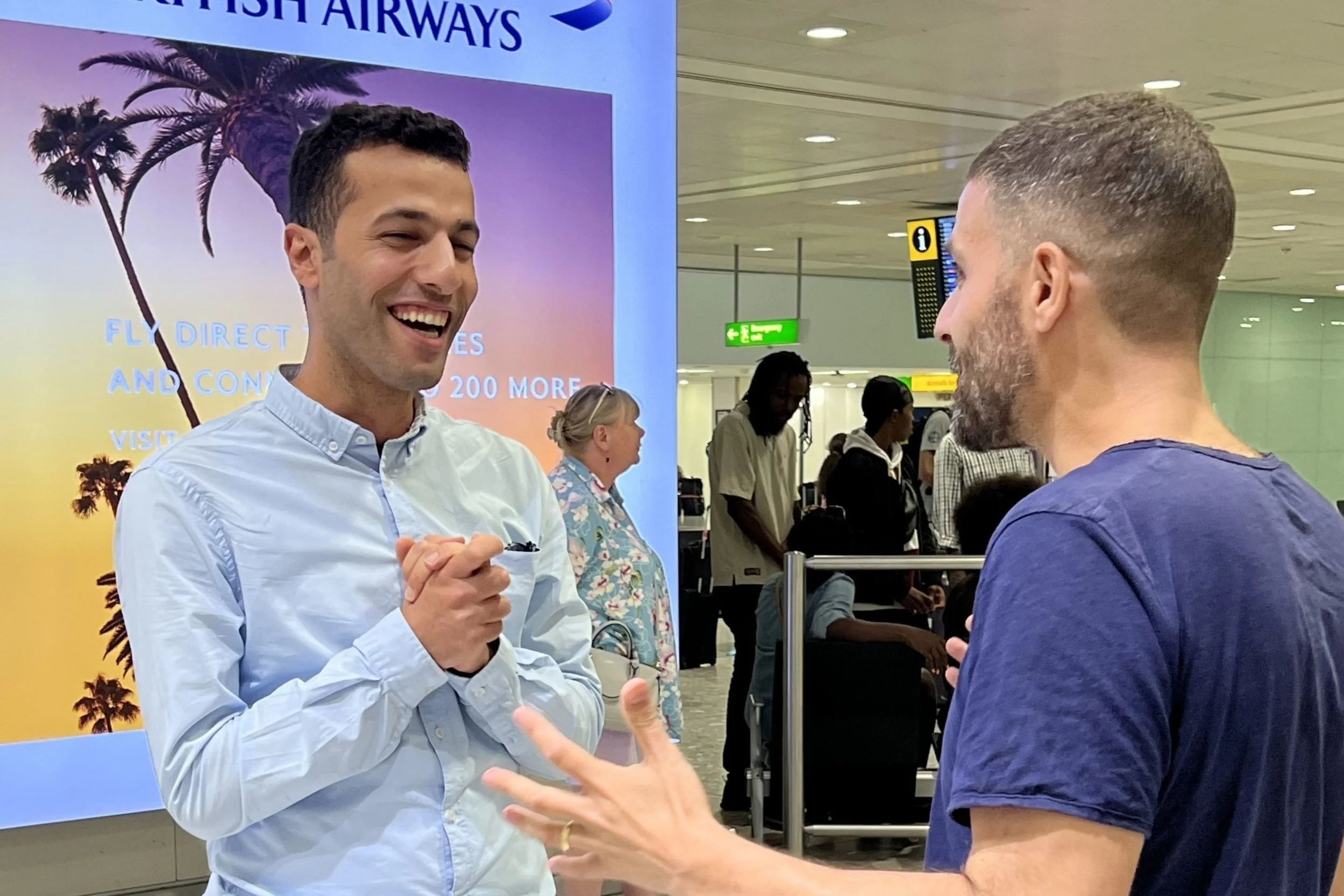Karim’s story: Finding a pathway to safety through passion and determination
Pictured above: Karim’s airport welcome from Good Humans and TBB
After ten years of living in displacement, Karim had almost lost hope.
Karim left Syria in 2012 due to the conflict, when he was just 22 years old. He had just completed two years of computer science college before fleeing to Jordan, where he knew nobody, and had no plan.
Once there, Karim quickly discovered that Syrians are only allowed to work in minimum wage jobs such as cleaning and farming. Permits for these jobs are expensive and difficult to obtain, so employers are often unwilling to cover them. As he describes the situation: “You have limited options to survive, to get a job, to pay for your basic needs such as rent, food and electricity.”
Chasing his dream job
Despite the barriers Karim faced in Jordan, his dream was to work in graphic design and digital art. Determined to pursue his chosen career, he persevered; learning new skills through online courses, books, and mentorships until he could get his first job.
After two years in Jordan he managed to find work with an advertising and printing company, but this work was informal, leaving Karim at risk of being forced to work long hours for little-to-no pay, and potentially being let go without due notice. Informal work also meant he had no access to healthcare, insurance, paid leave, or any other standard benefits. Karim describes how he felt at this time: “That kind of chaos makes you feel in constant uncertainty and you always worry about the next day and the next meal”.
Karim’s experience in Jordan was frustrating because he had so much energy and ambition, yet he was constantly overlooked - simply because of his refugee background. “You are not going to get rewarded or get any promotion because you're an outsider and you are illegal.”
The opportunity for a new life
After seeing a post on Facebook about Talent Beyond Boundaries (TBB), Karim registered himself on the Talent Catalog and was soon contacted about an opportunity to work in the UK as a 3D Animator.
“The first time I signed up my name on TBB, I got some hope that you can change your own situation. So, if you are good at something; if you develop your own skills or become a better version of yourself, someone will notice that," said Karim
Following a remote job interview, Karim was offered a position with Good Humans, a small media company based in London.
Karim describes how his employer supported him after the job offer: “The welcome started a month before I came! They made many, many nice gestures to me… a welcome letter, and they sent video recordings just welcoming me with each employee saying a few words, and I've done the same to them. It really excites me, they always try to make me comfortable.”
Supported by TBB and the UK Home Office, Karim’s employer sponsored him on a skilled worker visa through the UK Government’s Displaced Talent Mobility pilot. The pilot aims to identify and address the administrative and legal barriers that forcibly displaced job seekers face when seeking to move internationally as skilled workers. It also gives displaced talent free priority processing on their visas, so Karim’s visa was approved within five days of his biometric appointment in Jordan.
The Displaced Talent for Europe (DT4E) program also supported Karim and his employer through cultural pre-departure training from IOM, the UN’s Migration Agency, to help both parties prepare for Karim’s arrival in the UK.
Pictured above: Karim arriving at the airport in London in August 2022
Making a home in the UK
Since arriving in London in August 2022, Karim has been settling in well and getting used to London life.
Karim says he was most surprised by the many forms of public transport available in London; as a graphic designer he was impressed by how well the signs and maps presented the city’s complicated transport networks.
He feels that his transition to working in the UK has been smooth, as his employer has been very supportive, and his colleagues have created a friendly work environment. He says that the main difference in his day-to-day work (compared with Jordan) is getting used to some different computer graphics programs, which he picked up after a couple of days training.
As someone who has always been ambitious and dedicated to self-improvement, Karim is sad to reflect on the 10 years he spent living in displacement without employment opportunities in his field. His life in London is a stark contrast, as he explains, “This is my first time that I wake up in the morning without checking my email for any post graduate opportunities I could apply to.”
Dreams for the future
“I might have challenges (since moving to the UK), but there are no barriers,” stated Karim. “Once I get more settled, I'll proceed with my Masters degree and proceed with my work. I'll make a good impact with my employer; I owe them everything, actually.”
Karim has already been promoted in his workplace and is now working on design campaigns for some of the UK’s biggest brands.


